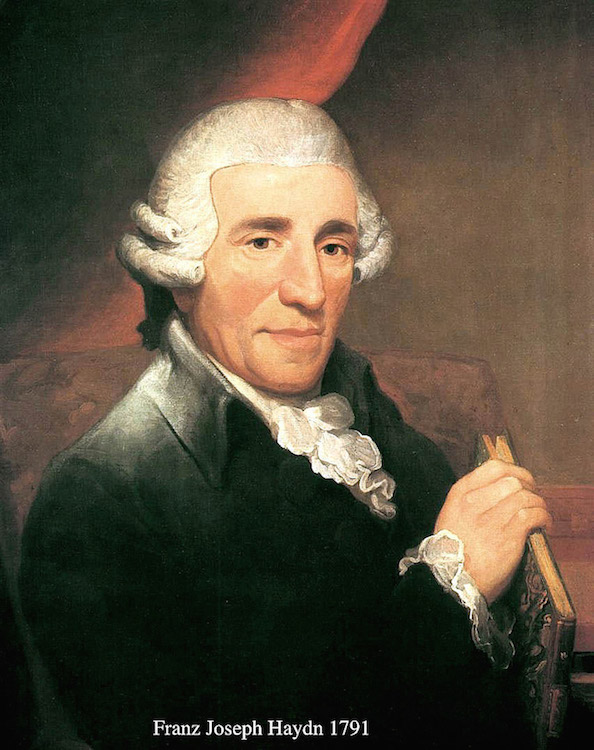It was never intended to be simply all about the music. With libretto by dramatist Pietro Metastasio, the canny old master of Hapsburg cultural politics, L’isola disabitata (The Deserted Island) was an unashamedly blatant piece of late Baroque propaganda. Custom-crafted in 1779 to celebrate the fabulously wealthy Prince Nikolaus Esterházy’s name day, the fevered tale of two independent women stranded in an untamed Arcadian wilderness brought Jean-Jacques Rousseau heart and soul to court. The rightness of the natural order, the emptiness of authority and convention, these were dangerous precepts in the aristocratic cosmos. Nativism, born of isolation and exclusion, left unaddressed would kick down the gates as it already had done in America. Woe betide the heedless Austro-Hungarian nobleman who turned a deaf ear.
The Prince’s kapellmeister instantly grasped the subtext, setting the moral of the tale in unambivalent terms. Shunning overly decorative arias, opting for fully accompanied recitatives, Franz Joseph Haydn fashioned a compelling piece, his potent score boldly hinting at Romanticism.
Meanwhile, outside the Esterházys’ private opera house nestled in their sprawling rococo schloss, the Age of Revolution continued to build momentum. Metastasio and Haydn had done what they could to enlighten their privileged patron.
Transplanting L’isola disabitata, all but forgotten after more than 200 years of sporadic performance, to the 60s minimalism of the St. Lawrence Centre’s Jane Mallet Theatre, Voicebox: Opera in Concert mounted an irresistible charm offensive last Sunday afternoon guaranteed to conquer even the most resistant heart.
Although sparsely elaborated on a stark stage stripped of anything but the vaguest suggestions of scenery and set — a few strategically placed risers providing a sense of topography, scrambled patterns of light and shadow summoning dense vegetation — Haydn’s taut one-act chamber opera was given persuasive new life.
Although largely reliant on imagination as a dramatic tool, the breezy air of spontaneity so characteristic of Opera in Concert offerings proved perfectly engaging. What we were left with, after all the love, laughter and raging emotion, was a Mozartian comedy-drama, a theatrical brand that Haydn’s vivid sketch of ruptured family ties more than superficially resembles. Or is it that Mozart’s more detailed domestic portraits derive from Haydn? The two were great admirers of one another’s work. Whatever the reality, Opera in Concert confirmed at least one essential truth during the course of the afternoon. Seen as story-telling, L’isola disabitata is pure 18th century operatic gold.
Stranded on a lonely, uncharted island, Costanza, a genteel traveller, despairs at her cruel abandonment unaware that her husband, Gernando, had been kidnapped by marauding pirates while she was ashore. For seven long years, she and her sister Silvia, a mere child at the time of their desertion, have been forced to survive on their own.
One day, a ship suddenly arrives bringing with it Gernando who has finally managed to flee captivity, accompanied by friend and fellow escapee Enrico. Gernando immediately recognizes the scene of his abduction. Spying the pair from hiding, Silvia, stricken with strange, never before experienced feelings, marvels at Enrico’s raffish good looks.
Determined to find the two castaways, Gernando and Enrico scour the island. Gernando discovers a bitterly worded curse carved on a rock by Costanza that causes him to think his wife is dead. Elsewhere on the island, Enrico and Silvia encounter one another and immediately succumb to each other’s charms. Lost in her despair, Costanza happens upon Gernando. Collapsing from the shock, she soon revives to learn the whole truth. All is forgiven. Enrico proposes to Silvia. Love and trust are restored.
Appearing as Costanza, singer actor Marjorie Maltais, confidently anchored this mid-winter Voicebox production with a deeply resonant performance, her rich, warm mezzo brimming with all the courage and desperation of a woman stretched to the ends of her wits. Her lustrous rendition of Haydn’s moving Ah che in van per me pietso (“All in vain time is flying”) instilled her solo with great dignity and grace.
Singing the role of Silvia, fellow Québecoise, soprano Valérie Bélanger, all but stole the show, her bouncy, high-spirited characterization as vibrant as her voice, adolescence personified, bright, adventurous, a shade unpredictable. Reaching to the very bottom of her profoundly robust lower register, Bélanger delivered one of the hits of the afternoon, an extraordinarily flavoursome Come il vapor s’ascende (“Like steam rising”), a lusty salute to churning teenage passion.
Possessed of luxurious lyricism and gentle Italianate tone, tenor Asitha Tennekoon contributed a gloriously sung principal turn as Gernando. No stranger to Toronto indie opera stages, this is clearly an artist on the fast track to stardom, a singer gifted with a brilliant, incandescent instrument and appealing stage manners. His was an abundantly plausible hero more fretful than swashbuckling, as anxious a romantic navigator as ever sailed the Seven Seas.
Fashioning a supremely entertaining Enrico, baritone Alex Dobson portrayed a delightfully vulnerable sidekick, all awkwardness and good intentions, big-hearted and even bigger-voiced. The extended duet, Dov’è Costanza? Io non la trovo. (“Where is Costanza? I can’t find her.”), a sweet Enrico-Silvia encounter, utterly charmed. Cast as a self-consciously flirty duo, Dobson and Bélanger entranced.
Leading the perennially exciting Aradia Ensemble, expanded to 13-players all properly assembled on stage, conductor Kevin Mallon steered a confident course through the reefs and depths of this bracing, turbulent L’isola disabitata. Haydn’s celebrated overture received particularly animated attention, crackling with Sturm und Drang. Moving forward, Mallon’s rapport with singers, infinitely respectful and solicitous, was a joy to witness.
Following a brief moment of silence as requested by Artistic Director Guillermo Silva-Marin in his opening remarks to the audience, Mallon and orchestra mesmerized with a gorgeously proportioned Sinfonia to Cantata N. 42 by J.S. Bach dedicated to Stuart Hamilton. Although not formally part of the tribute to the former Opera in Concert founder, L’isola disabitata, innovative, stimulating, artistically on-target, encapsulated his spirit perhaps even more fully. The much loved maestro’s memory lingered long after the last curtain call.


